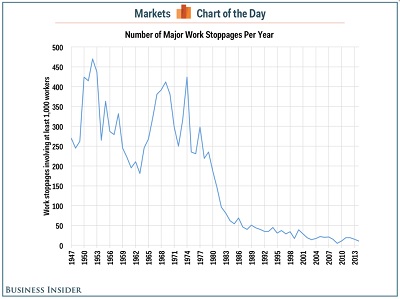I have to admit I’ve been one of those HR Pros who has had to design and develop relocation policies a few times in my career. My philosophy on relocation has changed somewhat over the years. In my career, I’ve accepted positions 4 times in which I went through “professional” relocation for various HR positions in my career. That fact has more impact on my philosophy of relocation than all other issues combined.
So, Fact #1 on getting a better relocation policy for your company: force those designing the policy to relocate, at least once. If you haven’t relocated, you can’t design the policy, it’s that simple.
People who haven’t relocated to another state for a job have no idea what impact it has on your life. It’s not the same as moving to a new house in another part of the city you live in. For the most part, if you have a significant other and some kids thrown into the mix, it’s probably one of the most stressful events you’ll go through in life. You get hired, Yeah! You now have to go show up at the new job, without family, belongings, etc. You’re trying out the new position, culture, etc., all the while your spouse is home trying to run life, now without 50% of her support resources. That person, you, is now living in a hotel or furnished the apartment, eating out each meal, sitting around doing nothing, etc. You’ll only understand if you’ve been through this!
You need to find a new house, but not until the old house is sold, find the right schools, etc., etc. Oh, and, by the way, you probably have some HR administrator going over your relocation expense reports like they’re a Zapruder Film. Oh, I’m sorry Mr. Sackett, you seem to have spent $1.32 too much on parking at the airport last week. Really!? I haven’t seen my wife and kids for two straight weeks, and we’re talking about $1.32? DON’T UNDERESTIMATE FACT #1.
I know the talk, lately, about relocation, has been about how difficult it is to get people to relocate because of falling housing values. Workforce Management’s article Recruiters Get Creative with Relocation in Sluggish Housing Market by Leah Shepherd speaks specifically to this dilemma. Clearly, it’s more expensive to get people to relocate, but I will argue that it isn’t more difficult. HR folks are classic in confusing expensive and more difficult – finance people don’t have this same issue. It’s not more difficult to get some to relocate, it’s just more expensive.
Here is where Fact #2 comes in: Never allow your Hiring Managers to get involved with Relocation.
Believe me, they will want to. It’s interesting how people who already work for a company tend to view relocation dollars spent, like the person receiving the relocation is getting a huge bonus! All of sudden your hiring manager believes they are personally responsible for every penny that is spent. They aren’t, and you the HR Pro understand this, and that’s why we keep our hiring managers out of the picture. We need them to have a great first impression of the new person, so take the money out of the picture so they can focus on the fit and skills.
HR/Recruiting Pros are in the business of increasing talent of their organizations, and this fact has to be paramount when discussing the finances of corporate relocation. This brings us to Fact #3 on how to make your relocation policy better: don’t budget relocation as a single annual amount, budget relocation by the percent of hires you anticipate in having to relocate.
Look, it’s way too easy for finance and executives to look at the HR budget and say, “Wow, $1.5M in relocation budgeted for 2010? You need to cut that by $500K.” Great, I’ll do that, but tell me which people we won’t be hiring?
Recruiting Pros need to come to the table with market data supporting why relocation is necessary and at which roles and levels. Cutting relocation isn’t a question about saving money; it’s a question about which talent is less important to the company, because that’s the real cost. Also, budgeting by hires forces departments and divisions to answer to their talent management strategies, instead of throwing it on HR’s back. Hey, it’s August, and we’ve already spent our Relocation budget for the whole company! No, Mr. Hiring Manager, it’s August, and we’ve spent your department’s relocation budget. You better talk to Mrs. CEO and tell her why you couldn’t manage your budget.
And lastly, Fact #4 – Don’t come to a Relocation Gunfight with a knife. Know what the person brings to the table and be able to show the alternatives to hiring that person, but either way show what the impact will be to the organization no matter what decision is made.

